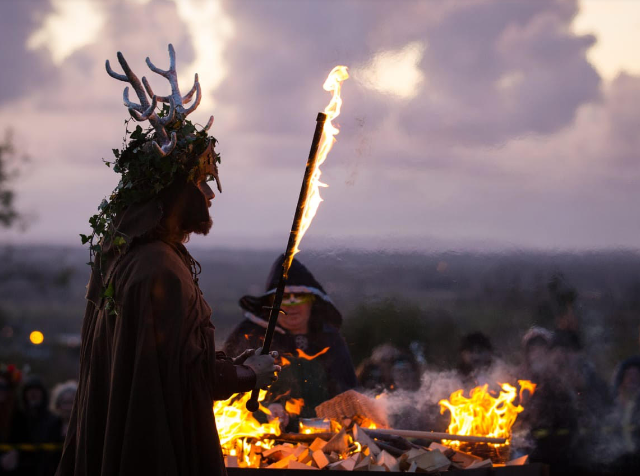The Catholics Who Stole Christmas
December 22, 2022
Christmas and Easter are the two most well-celebrated Christian holidays, but did they originate from Christianity? Most holidays, whether religious or not, have been found to be based on Pagan traditions. Paganism is a religion based on spiritual beliefs that do not follow the major religions, like Christianity, Judaism, and Islam. Some holidays prove to be very similar to traditional Pagan holidays, even very Christian holidays, like Christmas and Easter. Thus, many question whether the Catholics specifically stole such holidays from the Pagans.
Some holidays that almost every religion celebrates find themselves quite similar to those of Pagan holidays. For example, Valentine’s day takes place on February 14th, where participants celebrate their love for their significant others, family, and friends. Pagans celebrate Lupercalia, a holiday that took place on February 15th in Ancient Rome. Although this tradition involves alarming activities, such as sacrificing a goat and a dog, as well as running around the streets naked, the main focus of this day is to celebrate fertility and romance. Another example of very similar holidays is Halloween and Samhain. Halloween takes place on October 31st, while the latter is celebrated on All Saints’ Day, which happens to be November 1st. Samhain was originally celebrated by the Celtic Pagans, which marks the Celtic New Year, the end of summer and harvest season, and it signifies the beginning of winter, which is a symbol for death. Halloween revolves around scary situations and death, which sounds similar to Samhain.
Despite the similarities with Valentine’s Day and Halloween, some holidays prove to be a more sensitive subject. Christmas and Easter are Christian Holidays celebrated by many. However, they find themselves awfully similar to some Pagan traditions. The Pagans celebrated the winter and summer solstices, which took place near the times of Christmas and Easter. The winter solstice celebrated the Roman god Saturn, and the summer solstice celebrated the Sun God. Similarly, Christmas and Easter celebrate the Christian God, Jesus Christ. A religious studies professor at the University of Nebraska- Lincoln, Stephen Lahey, claims, “Christians weren’t trying to convert the pagans, but it isn’t a coincidence that the birth of Jesus is celebrated around the same time.” He says the Christians wanted to create a fun tradition like the Pagans, so they decided to celebrate the birth of Jesus around the same time (Ellen Hirst, The Daily Nebraskan). Other theorists claim that Christians do not truly know when Jesus was born; however, they know he was conceived on March 25, so they chose to celebrate his birth 9 months later in December (Joel Luckemeyer, The Sun-Gazette News).
No matter these coincidences, it is not directly stated whether the Christians, and more specifically Catholics, stole these Pagan traditions. Although some holidays sound similar, there are still aspects that are very different, such as Valentine’s Day as stated earlier. Times evolve, lands are taken over, and traditions progress. It cannot be such a surprise to people if some Christian holidays are adapted from Pagan traditions thousands of years ago. So, did the Christians really steal these holidays? Probably not, but the answer will never be definitely known.




Christie L Gera • Dec 23, 2022 at 11:03 am
This is an excellent article, Madelyn. Well researched.